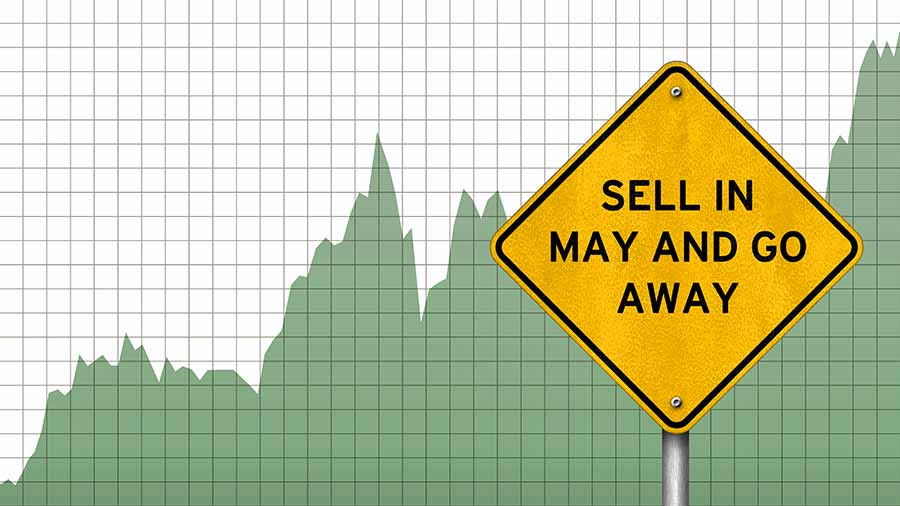Fisher Investments Reviews: Should You Sell in May?

Fisher Investments Market Perspectives
By Fisher Investments — 4/25/2024
As Spring unfolds each year, the old seasonal investing adage “Sell in May” usually reappears in media headlines. Derived from the original saying “Sell in May and go away and don’t come back until St. Leger Day,” this myth’s origins trace back to 19th century British brokers’ tendency to take extended summer vacations, subsequently diminishing trading and liquidity on the London Stock Exchange until after the St. Leger Day horse race in the final days of September. Today, the adage is typically used to argue investors should avoid stocks from May through October, with some variations in the exact timing. But does ”Sell in May” provide any useful insight for investors?
Fisher Investments has studied a variety of seasonal investing adages and believe they lack merit. In this article, we’ll take a closer look at the “Sell in May” myth, including the surprising truth about returns during the summer months, and why regularly selling in May can be detrimental to reaching your long-term investing goals.
Are the Summer Months Really Bad for Stocks?
The underlying message of “Sell in May” is simple. Summer is a bad time for stocks, so you can safely sell in May, let stocks drift lower, and then buy back in after October. However, when you look at historical stock return data dating back to 1925 (Exhibit 1), you see a different story. All months except September have positive average returns. July has been historically best—right in the middle of summer. Additionally, the three-month period from June through August historically boasts particularly strong average returns of 4.1%, beating the average of almost any other three consecutive months.
Exhibit 1: Average Stock Returns by Month
Source: Global Financial Data, Inc., as of 4/22/2024. S&P 500 total return from 12/31/1925 – 12/31/2023.
What about September’s weakness? As we’ve written previously, September actually features positive returns more often than not, but a few big outliers have flipped the month’s average return negative. For example, stocks fell 29.6% in September 1931 during the Great Depression, the worst single-month decline in modern history. Looking at the median—the midpoint of all observations—can help reduce skew from outliers. In September’s case, median returns are positive. Shunning stocks in September, or any month for that matter, more often means sidestepping gains, not losses.
Selling Based on Seasonality Myths—A Potentially Costly Mistake
Beyond looking at average monthly stock returns, how do stocks typically perform during the full “Sell in May” period? Dating back to the S&P 500’s inception, market returns from May through October have been positive a little over 70% of the time, with a healthy 4.4% average return[i].
Exhibit 2 highlights the difference in returns between investing in the S&P 500 for full calendar years (green line) compared to being invested from November through April (yellow line) as the “Sell in May” strategy would suggest. A hypothetical investment of $100,000 held from 1980 through 2023 would have grown to over $13.6 million being invested all-year round. Had it followed the “Sell in May” strategy, this same investment would have only grown to just over $3 million. The historical data shows selling in May leaves lots of potential return on the table—a difference of roughly 4% annualized! Missing out on positive returns can compound quickly, resulting in disappointing long-term returns and potentially jeopardizing your financial goals.
Exhibit 2: Hypothetical Growth of $100,000; Full Year vs. “Sell in May” Returns
Source: Global Financial Data. S&P 500 Total Returns from 12/31/1979 – 12/31/2023. *Annualized Rate of Return.
Historical data shows us the “Sell in May” adage has little merit as a market-timing strategy—something we believe also applies to all seasonality investing myths. Whether it’s “Sell in May,” the “January Effect,” “September Stinks,” or any other calendar-based stock strategy, they all presume past performance foretells future returns, which is a fundamentally flawed assumption about the stock market in our view. Markets are efficient at pre-pricing widely known information. Therefore, frequently discussed seasonality trends are incapable of being reliably predictive. To the extent any calendar-based forecasting tool seems to have predictive power, efficient markets should price it in and sap any potential advantage.
Want to Dig Deeper?
In this article, we reviewed the reliability of the “Sell in May” investing adage. For more analysis on this seasonal investing myth, you can read Fisher Investments’ MarketMinder article, “May is Just a Month, Not a Risk.”
Debunking “Sell in May and Go Away”
Fisher Investments’ founder, Executive Chairman and Co-Chief Investment Officer Ken Fisher debunks the common myth that investors should “Sell in May and go away”, along with other seasonal stock market adages. He also explains the shortcomings of basing investing decisions around seasonal investing adages.
For more market insights from Fisher Investments, get our latest commentary here.
Investing in securities involves a risk of loss. Past performance is never a guarantee of future returns. The results for individual portfolios and for different periods may vary depending on market conditions and the composition of the portfolio. Investing in foreign stock markets involves additional risks, such as the risk of currency fluctuations. The foregoing constitutes the general views of Fisher Investments and should not be regarded as personalized investment advice. Nothing herein is intended to be a recommendation. The opinions expressed are subject to change without notice.
[i] Source: Global Financial Data, Inc. as of 4/8/2024. S&P 500 Total Returns from 12/31/1979 to 12/31/2023.




